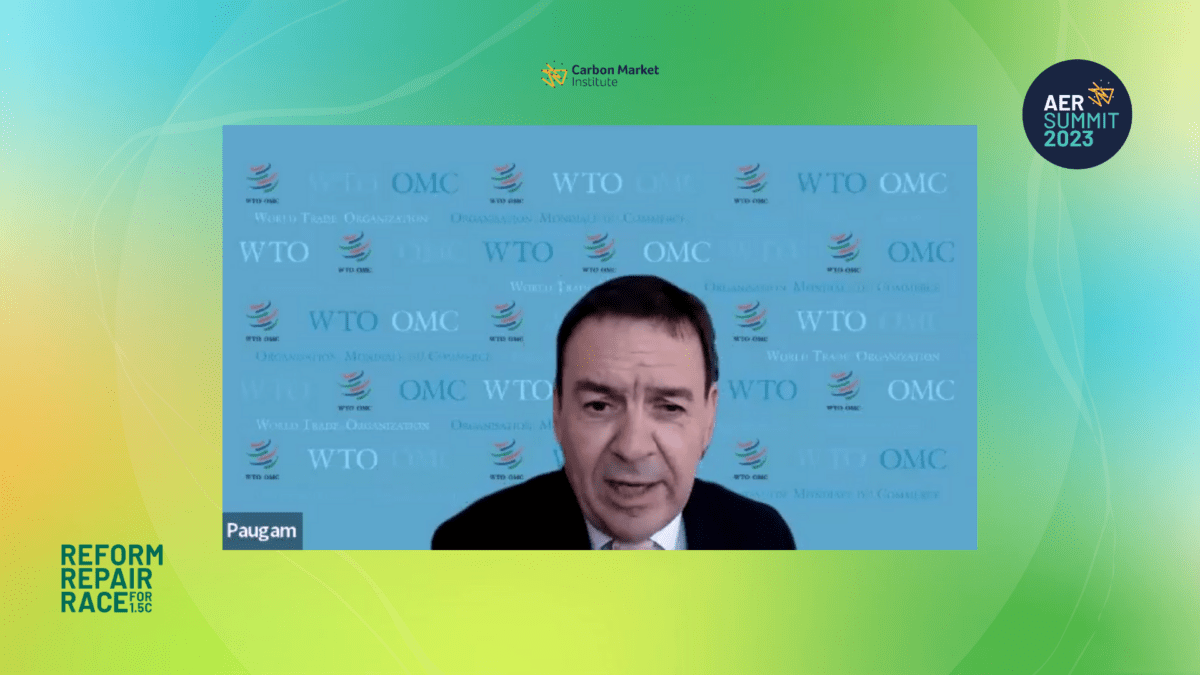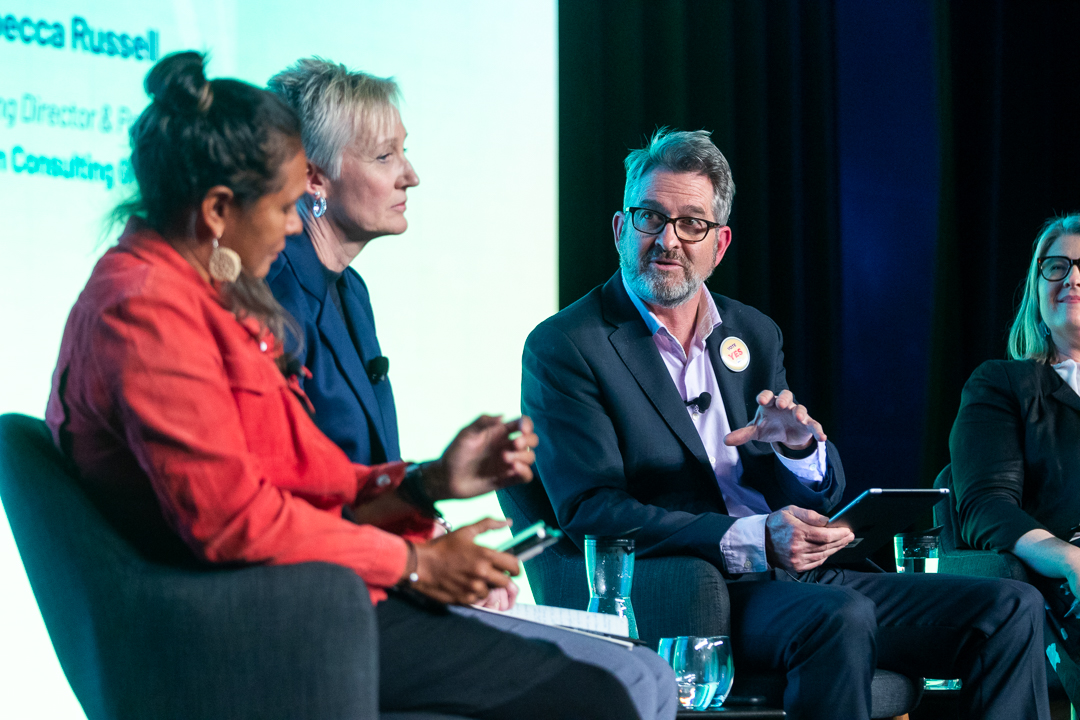UN climate talks that start in Dubai in late November must result in “a redoubling of ambition and an acceleration in climate action”, the UN’s climate change chief Simon Stiell told the Carbon Market Institute’s (CMI) Emissions Reduction Summit in Sydney today.
A global stocktake of current global actions will confirm that “we’re not doing enough”, Stiell warned.
The talks in Dubai “will be a critical opportunity to course-correct and build climate stability and resilience”, he said, adding that “phasing down fossil fuels is essential and inevitable”.
Stiell said that COP28 must also bring to life a “loss and damage” fund that was agreed to in-principle at last year’s UN talks, intended to help developing countries take steps to manage the harm caused by climate change.
In addition, the talks must deliver “real progress” on meeting the collective goal set in 2009 of mobilising US$100 billion annually for climate change mitigation activities in developing countries, he said.
Multilateral development banks and other global financial institutions must make sure they are “fit for purpose to deliver climate action”, Stiell added.
Stiell noted that all these changes must be made without leaving behind countries or communities.
“People must see that climate action is bringing them a better life.”
With COP28 now just 11 weeks away, Stiell urged those attending the Summit to “keep the climate agenda front and centre in the coming weeks”.
Niklas Hagelberg, climate program coordinator with the United Nations Environment Program, told the summit that the world was already experiencing impacts of climate change that are irreversible.
“The years from 2015 to 2022 were the eight warmest on record, and July 2023 has been confirmed as the warmest month on record,” Hagelberg said, adding that average global temperatures are already 1.17 degrees above pre-industrial levels.
“There is a 50% chance that average global temperatures of at least one of the years from 2022–2026 will be 1.5 °C warmer than pre-industrial times,” he said.
National emissions pledges are still significantly below what is required to limit temperature rise to no more than 1.5 degrees, Hagelberg noted.
Plans for increased fossil fuel production in various countries are not compatible with a 1.5 degree global limit and their net-zero targets, he added.
All up, we are currently heading towards a global temperature rise of 2.8 degrees, which UN Secretary General António Guterres has described as “a death sentence”, Hagelberg said.
However, Hagelberg told the summit that it is technically and economically feasible to reduce emissions and limit temperature rise to the Paris Agreement target.
In addition, most countries now have a net-zero policy, and 65% of countries have an economy-wide Renewable Energy Target, he said.
Media Kit with images available here.
About the 10th Annual Australasian Emissions Reduction Summit
The Carbon Market Institute’s annual Emissions Reduction Summit is one of the largest and longest-running business and climate action events in the region and is taking place in Sydney today and tomorrow (September 14 and 15).
In the midst of a transformational 12 months for the global economy as it continues to navigate the escalating challenges, scrutiny and real-life impacts of climate change, this year’s Summit will provide a timely pulse-check on business progress, as well as government ambition and international action as leaders prepare for COP28 later this year.
Speakers include Simon Stiell, UNFCCC Executive Secretary, Rachel Kyte, Co-Chair of the Voluntary Carbon Markets Integrity Initiative, and Jean-Marie Paugam, Deputy Director-General of the World Trade Organisation.
About the Carbon Market Institute
The Carbon Market Institute (CMI) is a member-based institute accelerating the transition towards a negative emissions, nature positive world. It champions best practice in carbon markets and climate policy, and its over 150 members include primary producers, carbon project developers, Indigenous organisations, legal, technology and advisory services, insurers, banks, investors, corporate entities and emission intensive industries. The positions put forward constitute CMI’s independent view and do not purport to represent any CMI individual, member company, or industry sector.



